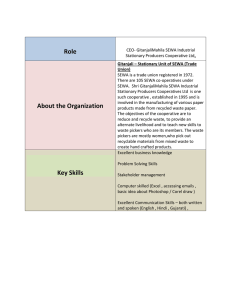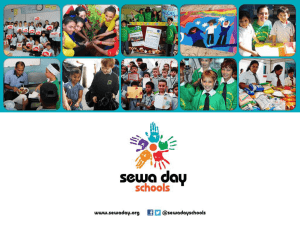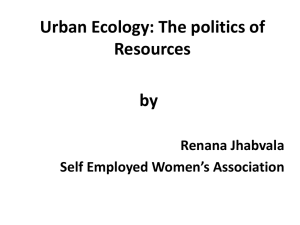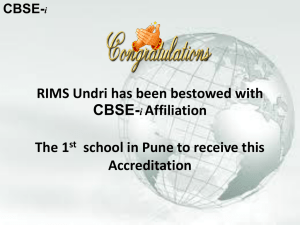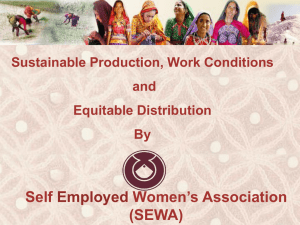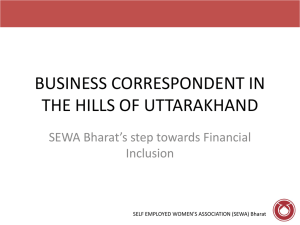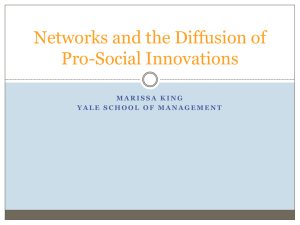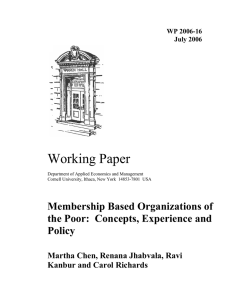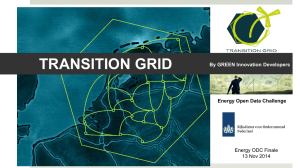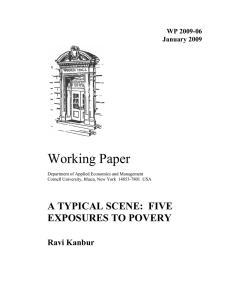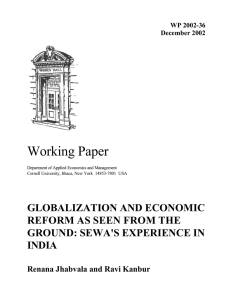Self Employed Women`s Association (SEWA) - Pilot in
advertisement
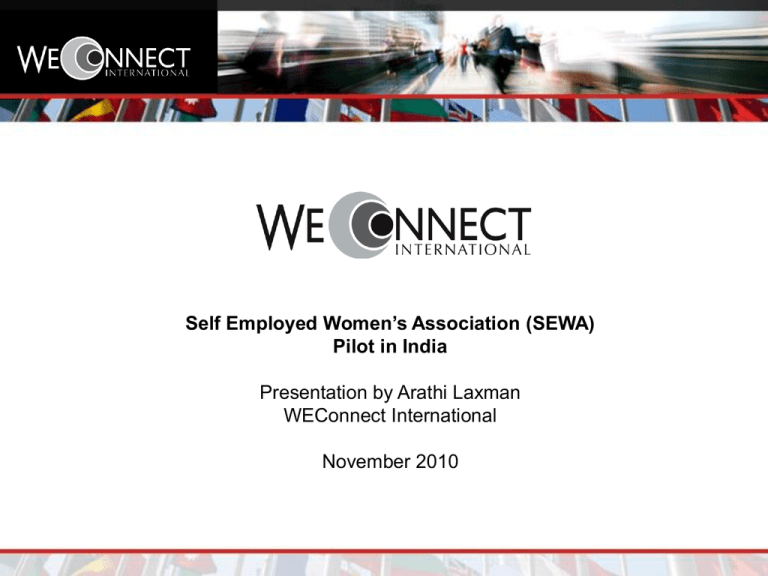
Self Employed Women’s Association (SEWA) Pilot in India Presentation by Arathi Laxman WEConnect International November 2010 Some Statistics… • According to The World Bank, women-owned businesses represent 25-33% of all private businesses in the world, but represent less than 1% of all vendors to corporations and businesses • Women do 2/3 of the world’s work, receive 10% of the world’s income, and own 1% of the means of production • Women make 70% of purchasing decisions in the home so their impact on value chain creation is key • Women represent 50% of the world’s population, but they are almost invisible in the global value chain as suppliers to corporations and governments 2 About SEWA • Self Employed Women’s Association (SEWA) is a trade union registered in 1972 • Organization of poor, self-employed women workers • Of the female labor force in India, more than 94% are in the unorganized sector and since their work is not counted, their work remains invisible • SEWA has many sister organizations focused on specific activities like crafts, insurance, food products, and agro • SEWA organized women rag pickers into a group called Gitanjali as a union focused on the needs of rag pickers 3 Rag Pickers – Their Story • Rag pickers pick up waste from the roads, door-to-door collections, and landfills • A day’s worth of labor results in collecting 3-5 kilos of waste, which post segregation yields 2-3 kilos of saleable waste giving them a per day wage that ranges for Rs 1050 • With the privatization of garbage/waste collection their livelihood is being eroded 4 SEWA Pilot and Stakeholders • The pilot brings together the World Bank Private Sector Leaders Forum, Self Employed Women's Association (SEWA), WEConnect International, UN International Trade Centre, Walmart, Ernst & Young, Accenture, Staples and Giftlinks. • The objective of the pilot is poverty alleviation through business opportunities for cooperatives of women entrepreneurs 5 SEWA Gitanjali Pilot Goals • Demonstrate the business case for a more inclusive value chain in the clean and green paper products industry • Document a process that can be replicated across industries and geographies 6 SEWA Pilot Launch Status • Pilot was launched in India in August of 2010 • In order to provide sustainable income to the waste paper picker members of SEWA, SEWA provides training to its members on how to make paper based office products • Paper based products include: pens, paper bags, folders, registers, box files, spring files, notebooks, bookmarks, letter boxes, pen stands, CD covers, envelopes, etc. • SEWA has organized 31,505 waste paper pickers with 125 women working on developing paper based products 7 Opportunity • Create an initial group of products that meet the quality and quantity requirements of key buyers • Set up a means for products to be marketed and distributed through the preferred channels • Evangelize SEWA paper products throughout pilot network • Create production centers with repeatable processes for consistent production, quality control, and mechanisms for reliable business communication with buyer organizations • Create learning centers and repeatable processes for training of women workers to ensure sustainability 8 Major Challenges • • • • Developing reliable and affordable sources of paper input Hygiene of the products produced from recycled paper Literacy of the workers and the management Ability to scale to meet the quality and quantity requirements of large buyers • Ability to offer competitive pricing • Packaging and marketing 9 Contact • For more information, please visit: www.WEConnectInternational.org 10
